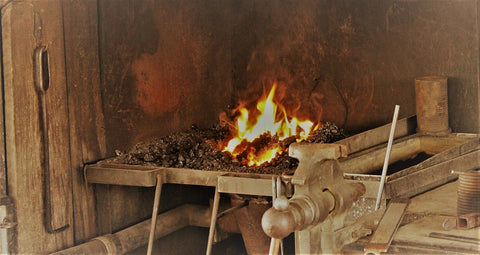Electroplating revolutionized technology and plays an indispensable role in our daily lives. It facilitates cheap jewelry, modern computer parts, kitchen appliances, the inner workings of car engines, and much more.

(Pixabay / Amber_Avalona)
Electroplating was developed in the early 1800s. Before this, other processes were used to coat a base substance with metal. In the absence of electroplating, these methods were all humanity had to accomplish certain tasks, but they were often inefficient and even dangerous. Here’s a look at one of these methods known as fire gilding.
Before Electroplating
Fire gilding is a process that utilizes fire to coat base metals with gold. It sounds like something straight out of a wizard’s book, but it involved more science than magic. This method was used in China before the 4th Century B.C. In Europe, the method became popular in the 2nd Century A.D.
Fire gilding was a solution that allowed people to coat objects with precious metals such as gold and silver. The challenge was how to get these metals into a liquid form that would adhere evenly to a base metal, without melting the base metal.
Fire and Mercury
Fire gilding relied on mercury in combination with the desired finishing metal. At room temperature, mercury is actually a liquid, unlike gold and silver. When combined with mercury, gold and silver actually melt into a liquid form that spreads much like softened butter. This compound can then be used to cover a substrate.
Fire enters into the equation when the item is fully covered. The fire can boil the mercury off, leaving a solid coating of gold or silver. Mercury boils off at around 357º Celsius, which may sound high but is a relatively easy threshold to achieve.
You can probably guess why fire gilding is no longer used: mercury. Even though mercury proved helpful in electroplating, it caused an untold amount of health problems. When inhaled, mercury fumes can be poisonous and fatal. Electroplating was a welcome invention, accomplishing the same thing as fire gilding without the perils.
